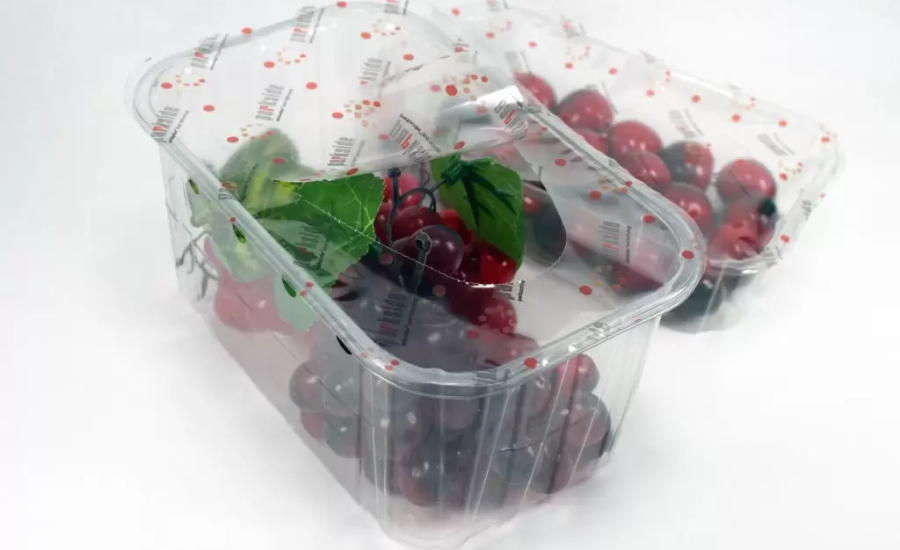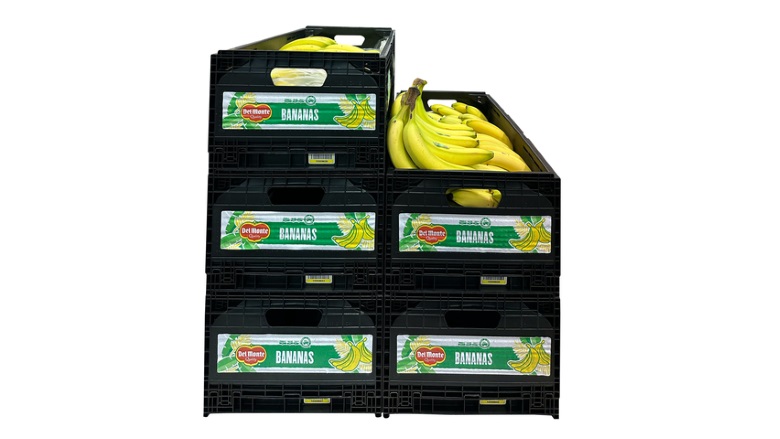
Image Source: DutchScenery / Creatas Video+ via Getty Images Plus
Eco-Friendly Produce Packaging: A Cornucopia of Innovation
Packaging Strategies’ reporting in recent months reveals an abundance of novel approaches to eco-friendlier produce packaging.
This story looks at recent innovations rendering produce packaging more eco-friendly.
However, before looking at specific routes to more sustainable produce packaging, it’s worth stepping back and taking a broader view of the produce packaging market.
Market research firm The Freedonia Group pegs the size of the U.S. fresh produce packaging market at $6.6 billion for 2024. The market is forecast to increase 2.4% per year to $7.3 billion in 2028, reaching 58.6 billion units.
“Plastic will continue to account for the majority share of packaging sales as it is the most common option for rigid packaging such as clamshells,” The Freedonia Group says. However, the firm adds that paper and molded fiber packaging are making inroads, benefiting from being positioned as renewable and having good environmental perceptions among consumers.
“Whether paper and molded fiber are generally more sustainable than plastic, many companies are capitalizing on the notion that these materials are more eco-friendly alternatives,” the firm notes. “To that end, multiple players are developing new paper and molder fiber packaging technologies that can stand up to plastic’s performance properties.”
Packaging Strategies’ own reporting in recent months reveals an abundance of innovation when it comes to fresh produce packaging — including flexible packaging.
ProAmpac has been recognized by the Environmental Packaging Awards for developing a curbside-recyclable, fiber-based packaging solution for Marks and Spencer’s Select Farms Organic potato range.
Parkside has developed a lidding film that not only is recyclable in some curbside collection schemes but also allows end users to simply press down, pop open and peel pack, creating a satisfyingly simple opening experience for consumers.
Meijer recently became the first retailer nationwide to carry Earthbound Farm Organic Mini Peeled Carrots packaged by Bolthouse Farms in compostable bags, and Fresh Del Monte Produce Inc. recently announced a strategic partnership with Arena Packaging to introduce Reusable Plastic Containers (RPCs) for bananas.
Find out more about these game-changing developments!
ProAmpac Receives Recognition for Fresh Fruit and Vegetables Packaging

ProAmpac’s ProActive Recyclable RP-1000 has received recognition from the Environmental Packaging Awards in the Fresh Fruit and Vegetables category. Courtesy of ProAmpac
ProAmpac, a global leader in flexible packaging and material science, was selected earlier this year as a finalist at the 2024 Environmental Packaging Awards.
The Environmental Packaging Awards, now in their second year, celebrate innovations and individuals making significant strides in sustainability within the packaging industry. These awards acknowledge those who demonstrate a strong commitment to environmental responsibility while maintaining the essential function of packaging in protecting products.
ProAmpac’s ProActive Recyclable RP-1000 has received recognition in the Fresh Fruit and Vegetables category for collaborating with Marks and Spencer’s Select Farms Organic potato range. This curbside-recyclable fiber-based packaging solution features eye-catching graphics and has excellent robustness for product protection and premium sealant technology for running at rate on high-speed form-fill-seal equipment.
Parkside Launches Recyclable Lidding Film for Fresh Produce

The PopflexTM lidding film is laser-scored using patented ParkScribeTM technology to create an integral opening flap that end users can press down, pop open, and peel back. Courtesy of Parkside
Parkside has launched its latest flexible packaging innovation, PopflexTM lidding film, providing a game-changing recyclable solution for fresh produce packers and growers.
When paired with and weld-sealed to a matching PET tray, the film is designed to stay attached to the tray throughout the recycling process, reducing the risk of PET material contaminating PP and PE recycling streams. This means the new solution is OPRL-certified as recyclable in curbside collection schemes, meaning the end user can simply drop the entire pack into their recycling bin after use.
The film is laser-scored using patented ParkScribeTM technology to create an integral opening flap that end users can press down, pop open, and peel back, creating a satisfyingly simple opening experience for consumers. The film is breathable when using the option of macro perforation to prolong the shelf life of the produce, and is made using recyclable PET containing a minimum of 30% post-consumer recycled content film. It is a mono PET rather than duplex like Parkside’s laser-scored lidding, which means it uses less plastic and is more cost effective, but with the same recyclable classification.
Meijer Reduces Plastic Packaging in New Partnership with Bolthouse Farms

Earthbound Farm Organic Mini Peeled Carrots — packaged by Bolthouse Farms in compostable bags. Courtesy of Meijer
Meijer announced in October 2023 becoming the first retailer nationwide to carry Earthbound Farm Organic Mini Peeled Carrots – packaged by Bolthouse Farms in compostable bags.
The partnership with Bolthouse Farms — one of the retailer's longest supplier relationships — reflects the company's preference for offering its customers more sustainable packaging options, said Ron Lovelace, Director of Produce for Meijer.
“The decisions we make today impact the world we live in, which is why we’re committed to continual improvement through smart partnerships and innovations that benefit our customers and communities,” Lovelace said. “We've been clear and vocal with our suppliers that we want to offer more sustainable packaging options, and if they can develop the packaging, we will partner with them.”
Fresh Del Monte, Arena Packaging Launch Reusable Plastic Banana Containers

Fresh Del Monte Produce Inc. announced in November 2023 a strategic partnership with Arena Packaging to introduce Reusable Plastic Containers (RPCs) for bananas. Courtesy of Fresh Del Monte Produce
Fresh Del Monte Produce Inc., one of the world’s leading vertically integrated producers, marketers, and distributors of high-quality fresh and fresh-cut fruits and vegetables, announced in November 2023 a strategic partnership with Arena Packaging, a leading packaging, design, and pooling company in North America, to introduce Reusable Plastic Containers (RPCs) for bananas.
The groundbreaking invention aims to transform industry standards for the leading fruit in fresh produce, while significantly reducing food waste, carbon emissions, operational costs, and preserving the fruit's health.
With the introduction of RPCs, banana shipments now enjoy improved airflow and extended shelf life. RPCs are not only reusable but also trackable, with a remarkable life cycle of up to 15 years. Each container will be reused approximately five times in a single year, and if damaged, individual parts can be collected, replaced, and repurposed.
